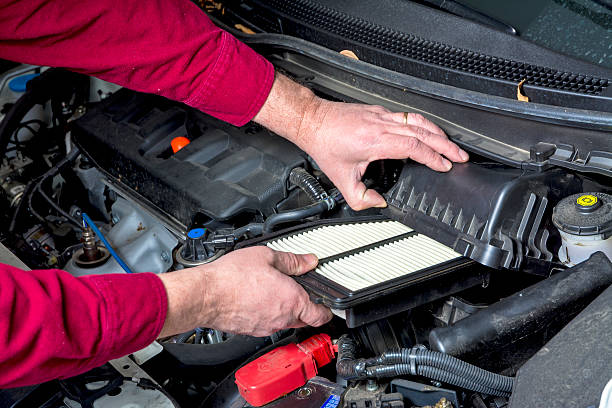July 25, 2024
Can an air filter affect a thermostat?
An air filter can indirectly affect a thermostat by impacting the performance of your HVAC (Heating, Ventilation, and Air Conditioning) system. Here’s how:
- Restricted Airflow: If the air filter is dirty or clogged, it can restrict airflow through your HVAC system. This can cause the system to work harder to circulate air, potentially making it difficult to reach the temperature set on the thermostat. As a result, the thermostat may detect that the desired temperature has not been reached and keep the system running longer.
- Inconsistent Temperature: A clogged air filter can lead to uneven heating or cooling in different areas of your home. This can cause the thermostat to misinterpret the actual temperature in the room, leading to inaccurate readings and inefficient operation.
- System Overheating: In extreme cases, a dirty air filter can cause the HVAC system to overheat. Some systems have safety mechanisms that shut down the unit to prevent damage, but this can lead to the thermostat showing an incorrect temperature or failing to control the temperature effectively.
- Reduced Efficiency: A clogged filter reduces the efficiency of the HVAC system, which can result in the system running longer to achieve the set temperature, increasing energy consumption and wear on the system.
To ensure your thermostat operates correctly, it’s important to check and replace your air filter regularly, typically every 1-3 months, depending on usage and the type of filter.
Does air filter affect AC temperature?
Yes, the air filter can significantly affect the temperature output of your air conditioning (AC) system. Here’s how:
- Reduced Cooling Efficiency: A dirty or clogged air filter restricts airflow through the AC system, reducing its cooling efficiency. The system has to work harder to push air through the clogged filter, which can prevent it from cooling your home effectively. As a result, the temperature in your home may not reach the level set on the thermostat.
- Uneven Cooling: If the airflow is restricted, some areas of your home might receive less cooled air, leading to uneven cooling. Certain rooms might stay warmer than others, even if the AC is running.
- System Overheating: In some cases, a clogged air filter can cause the AC system’s evaporator coil to freeze due to insufficient airflow. This can further reduce the system’s ability to cool the air, causing the temperature to stay higher than desired.
- Increased Energy Consumption: With restricted airflow, the AC has to run longer and harder to cool your home, which can lead to higher energy bills and put more strain on the system, potentially leading to breakdowns.
To maintain optimal AC performance and ensure the temperature in your home is properly regulated, it’s important to regularly check and replace the air filter, typically every 1-3 months, depending on usage and the type of filter.

